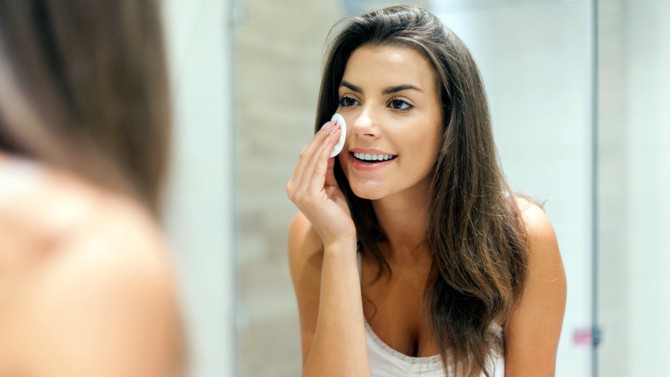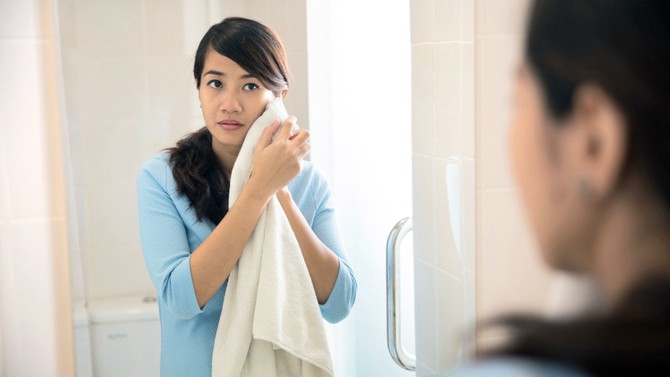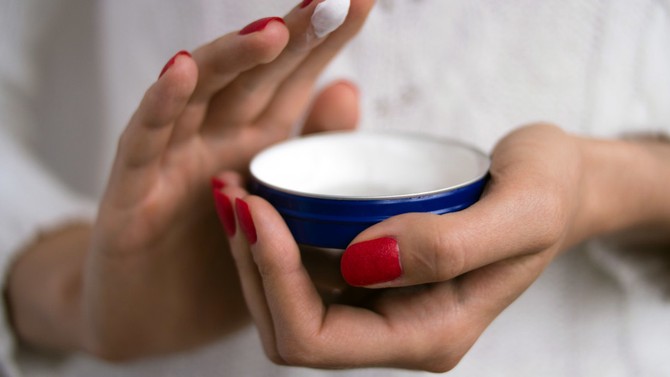6 Nighttime Habits That Make You Look Older
Even if you regularly get seven hours of shut-eye to keep your skin healthy and youthful, you could be sabotaging your complexion in other ways.
By Emma Haak

Photo: GeorgeRudy/istockphoto
Sleeping This Way on These Types of Sheets
Why it's making you look older: Sleeping on your stomach or side can lead to wrinkles, says Lauren Ploch, MD, an Augusta, Georgia-based board-certified dermatologist and Fellow of the American Academy of Dermatology, which is why she and pretty much any dermatologist will tell you it's best to sleep on your back. If you're a stomach/side sleeper with cotton or flannel pillowcases though, you could be making matters even worse, as those two fabrics tend to cling and pull on the skin, says Rachel Nazarian, MD, assistant clinical professor of dermatology at Mount Sinai Hospital in New York.
The fix: Becoming a back sleeper isn't easy; plus, you can't control whether you move and turn over in your sleep. A do-able first move is to switch to silk or satin pillowcases.

Photo: gpointstudio/istockphoto
Using a Gentle Cleanser to Remove Your Makeup
Why it's making you look older: Thanks to today's long-wear, budge-proof makeup formulas, "which require more than water and a gentle cleanser to remove," says Nazarian, you're probably going to bed with some makeup still on your face. That can lead to clogged pores, dull skin and accelerated skin aging, says Nazarian.
The fix: If you use long-lasting makeup formulas, start your cleansing process with a makeup-removing wipe or cloth (which will have ingredients that break down long-wear formulas better than a regular cleanser can. Look for ones that say "makeup-removing" on the packaging); then use your gentle cleanser to catch any traces the wipe left behind. The two-step combination is much more likely to get all of your makeup off before you hit the hay.

Photo: Scukrov/istockphoto
Turning the Thermostat Up to Toasty
Why it's making you look older: You know that heat can dry out your skin, and that exacerbates wrinkles. It can also lead to eczema and atopic dermatitis flare-ups, and is a known trigger for rosacea, an inflammatory condition that accelerates the aging process, says Nazarian.
The fix: Everyone's ideal sleeping temperature is different, but a good rule of thumb is to find a temperature where you're just a little bit cool without a blanket, not straight-up cold. (You could also try using a humidifier in the bedroom to keep the air moist.)

Photo: ferlistockphoto/istockphoto
Applying Retinol Immediately After You Wash Your Face
Why it's making you look older: Retinol (the gold standard among anti-aging ingredients) can be irritating. Because it penetrates even deeper into damp skin, you may experience increased tenderness or feel it more sharply, says Nazarian. You're less likely to use it consistently if you can't stand the way it makes your skin feel; and, if you don't apply it regularly, you won't see the benefits.
The fix: If you're new (or even new-ish) to retinol, make sure your skin is dry before you apply it. Only seasoned retinol users should consider using it on damp skin.

Photo: iprogressman/istockphoto
Not Including Hand Cream in Your Nightly Routine
Why it's making you look older: Along with your chest/neck area (and your face, of course) your hands are one of the first areas to show the signs of aging. Using a rich, hydrating hand cream is a great way to combat dryness and crepey skin; but, if you put it on in the morning, you'll likely wash and rinse it off over the course of the day, says Nazarian.
The fix: Make hand cream part of your nightly anti-aging routine, applying it just before bed.

Photo: GlobalStock/istockphoto
Putting Your Anti-Agers on Haphazardly
Why it's making you look older: First, kudos for using anti-agers at night, when your skin makes the best use of them. But they need to be applied in the right order to make sure all of the ingredients can actually reach your skin. Generally speaking, products should be put on in order of heaviness—gel, lotion, cream, serum, ointment, etc.—to prevent thicker products from blocking the lighter ones.
The fix: Start with serums or gels, then lotions, then creams, then ointments, says Nazarian. Don't go overboard with products, though. Ploch recommends using no more than three or four per night, to minimize skin irritation. If you've got a long nightly routine full of products that only do one thing each, consider switching to multitasking products instead.
Want more stories like this delivered to your inbox? Sign up for the Oprah.com Healthy Body newsletter!
Published 01/25/2016

